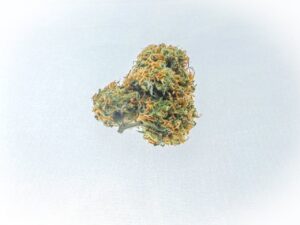Learn how to safely enjoy the benefits of THC with expert guidance and practical tips. Discover the ins and outs of consuming THC responsibly while maximizing its advantages. From dosage recommendations to consumption methods, this guide covers everything you need to know for a safe and enjoyable experience. Whether you’re new to THC or looking to enhance your current practices, this comprehensive resource will help you navigate the world of THC with confidence.
Table of Contents
ToggleWho Can Benefit from THC?
Demographics
Many people can benefit from THC and CBD products, including individuals suffering from chronic pain, anxiety, insomnia, and chemotherapy-induced nausea. Much THC is particularly helpful for older adults dealing with age-related conditions like arthritis or neuropathic pain.
Health Conditions
THC, which is a special part of the marijuana plant, can help people with different health problems. If someone has long-lasting pain, like arthritis or fibromyalgia, THC might be able to help them feel better. People who feel worried or nervous a lot might find some comfort in THC because it can help calm them down. And if someone has trouble sleeping, THC could make them feel sleepy and improve the way they sleep.
When someone is getting cancer treatment, the medicine they take can make them feel sick and not want to eat. However, some people say that using THC can help them feel less sick and more hungry during their treatment. It’s important to always talk to a doctor before trying THC, especially for kids or teenagers.
Consulting Healthcare Professionals
Before using THC products, it’s crucial for people in states where it is legal to consult a healthcare professional. They can guide proper dosages, potential interactions with other medications, and personalized recommendations based on individual health conditions.
Recognizing Potency in Cannabis Products
Understanding Labels
When exploring cannabis products, it’s crucial to grasp how to interpret potency labels, especially for micro dosing and understanding how much THC people consume. These labels typically display the level of THC and CBD present. The percentage values indicate the strength of these compounds in the product.
Different Product Forms
Cannabis products come in various forms, such as edibles, oils, tinctures, concentrates, et al. Each form has a different method of consumption and potency levels. For example, edibles tend to have a delayed onset but longer-lasting effects due to the way they are metabolized in the body.
Choosing the Right Potency
To ensure a safe and enjoyable experience with THC, individuals should consider their tolerance levels when selecting a product. Beginners or those with low tolerance should opt for products with lower THC concentrations to avoid overwhelming effects. Conversely, experienced users may prefer higher potency options for stronger effects.
Tips for Safe Consumption
- Start Low: Begin with products that have low THC content and gradually increase dosage if needed.
- Seek Professional Advice: Consult with budtenders at dispensaries for recommendations based on your experience level.
- Know Your Limits: Understand your body’s response to THC and adjust potency levels accordingly.
- Consider CBD: Combining CBD with THC can help mitigate some of the psychoactive effects of THC while enhancing its therapeutic benefits.
Safe Dosage and Consumption Practices
Determining Dosage Guidelines
Determining the appropriate dosage of THC is crucial for a safe and enjoyable experience. Factors such as tolerance, body weight, and experience level play a significant role in finding the right dose. It’s recommended to start with a low dose and gradually increase it to avoid any adverse effects.
Importance of Starting Small
Starting with a low dose is essential, especially for beginners or individuals with low tolerance levels. This approach allows the body to adjust gradually to the effects of THC, reducing the risk of overconsumption. By starting with a small amount, users can gauge their sensitivity to THC and adjust accordingly.
Consumption Methods and Dosage Control
Various consumption methods, such as edibles, vaping, and topicals, offer different experiences based on how the body processes THC. For example, edibles tend to have a slower onset but longer-lasting effects compared to vaping. Understanding these differences is crucial for controlling dosage and ensuring a safe experience.
Exploring Medical and Recreational Benefits
Medical Conditions Treated by THC
THC has shown effectiveness in treating various medical conditions, including chronic pain, nausea, muscle spasms, and loss of appetite in patients undergoing chemotherapy. It has been beneficial for individuals with multiple sclerosis and epilepsy, reducing seizure frequency.
Benefits of THC for Medical vs. Recreational Use
In medical contexts, THC proves valuable by delivering therapeutic advantages like pain alleviation minus addiction or misuse concerns. This natural substitute is particularly beneficial for persistent ailments, offering a viable alternative to conventional drugs.
On the recreational front, THC is predominantly sought after for its psychoactive properties, inducing sensations of euphoria and calmness. Nevertheless, recreational usage carries the caveat of potential dependency and adverse health consequences if not approached with care and responsibility.
Positive Effects of THC on Mental Health
Research suggests that THC can have positive effects on mental health by alleviating symptoms of anxiety and depression. In controlled doses, it may help individuals manage stress and improve mood. However, excessive consumption or misuse can lead to negative outcomes, such as increased anxiety levels.
Comparing Dosage Practices in Medical and Recreational Settings
In medical settings, healthcare professionals carefully prescribe specific doses of THC based on individual needs and medical conditions. This ensures that patients receive therapeutic benefits while minimizing the risk of adverse effects. On the other hand, recreational users often face challenges in determining appropriate dosages, which can result in overconsumption and unwanted side effects.
Addressing Misconceptions about THC Usage
Despite its medicinal potential, there are misconceptions surrounding THC due to its classification as a drug. It’s essential to differentiate between therapeutic uses under medical supervision and instances of drug abuse characterized by excessive consumption for non-medical purposes. Education plays a crucial role in promoting safe and responsible usage practices.
Who Should Avoid Cannabis
Pregnancy Risks
Pregnant women should avoid cannabis consumption due to potential risks to the developing fetus. Cannabis use during pregnancy can lead to low birth weight, premature birth, and developmental issues in the child.
Adolescents and Young Adults
Adolescents and young adults should be cautious with cannabis use, as it can impact brain development. Regular cannabis consumption during this critical period can affect memory, learning, and cognitive functions.
Individuals with Mental Health Conditions
For those with existing mental health conditions, using cannabis may exacerbate symptoms. Anxiety disorders, depression, and psychosis can worsen with cannabis consumption, leading to increased mental health challenges.
Alternatives for Cannabis Avoidance
- CBD Products: Consider using CBD products, which offer potential therapeutic benefits without the psychoactive effects of THC.
- Mindfulness Practices: Engage in mindfulness practices such as meditation or yoga to manage stress and promote relaxation without relying on cannabis.
- Consult Healthcare Providers: Seek guidance from healthcare providers for alternative treatments or therapies tailored to individual needs.
Legal Ways to Obtain Cannabis
Dispensaries
Dispensaries are licensed stores where individuals can purchase various forms of cannabis, including cannabis flowers and edibles. These establishments operate within the legal framework set by each state, ensuring safe and regulated access to cannabis products.
Dispensaries offer a wide range of strains to cater to different preferences, providing detailed information on the THC and CBD content of each product. Thus, although they function differently, CBD and THC are both excellent at relieving pain. THC is like a lightning-fast superhero that comes to your rescue right when you need it most, but CBD is like a kind healer that works gradually but steadily!
Online Retailers
When thinking about buying cannabis, using the internet can be a smart choice. There are lots of different types of cannabis products that you can find online. You can also read reviews from other people who have tried the products before you decide to buy.
Online retailers typically ask about your age and residence before accepting your order. This is because they want to ensure that they are abiding by the regulations of who is allowed to purchase cannabis. Young people must wait until they are older before using cannabis, which is why they don’t want to market it to children. Online retailers can ensure that cannabis is used responsibly and keep everyone safe by requesting your age and location.
Medical Marijuana Cards
For individuals seeking medical cannabis for therapeutic purposes, obtaining a medical marijuana card is essential. These cards are issued by authorized healthcare providers after evaluating the patient’s condition and determining if cannabis treatment is suitable.
Medical marijuana cards provide patients with legal protection and access to dispensaries that offer specialized medical-grade cannabis products. Patients with qualifying conditions such as chronic pain, epilepsy, or PTSD can benefit from the therapeutic properties of cannabis under medical supervision.
How to Safely Incorporate THC into Wellness Practices
Integrating THC into Daily Routines
Incorporating THC into daily routines can enhance relaxation and overall well-being. Start by adding a small dose of THC to your evening wind-down routine. This can help you unwind and destress after a long day.
Consider mixing THC with activities like reading or listening to music for a calming experience. Experiment with different methods of consumption, such as edibles or vaping, to find what works best for you.
Combining THC with Yoga and Meditation
Pairing THC with yoga or meditation can deepen the mind-body connection. Before starting your practice, consume a moderate amount of THC to help relax your body and mind.
During yoga or meditation sessions, focus on mindfulness and being present in the moment et al. The combination of THC and these practices can enhance relaxation and promote a deeper sense of calm.
Tips for Maintaining Balance with THC Use
- Stay Hydrated: Drinking plenty of water is essential when using THC to prevent dehydration.
- Monitor Dosage: Start with low doses and gradually increase to find your optimal level.
- Healthy Diet: Maintain a balanced diet rich in fruits, vegetables, and lean proteins to support overall wellness.
- Regular Exercise: Incorporate physical activity into your routine to boost mood and overall health.
- Mindful Consumption: Be mindful of how THC affects your body and adjust your usage accordingly.
Risks and Safety Tips for New Users
Common Risks
New users should be aware of common risks associated with THC consumption. These include increased heart rate, dizziness, paranoia, impaired memory et al. It’s crucial to start with low doses to gauge individual tolerance levels.
Safety Tips
To ensure a safe experience, beginners should follow these safety tips:
- Start with products that have a low THC concentration.
- Avoid mixing THC with alcohol or other substances.
- Choose a comfortable and familiar environment for consumption.
- Have a trusted friend present in case of any adverse reactions.
Importance of Individual Tolerance Levels
Understanding one’s tolerance levels is key to enjoying the benefits of THC safely. Factors such as body weight, metabolism, and prior exposure to cannabis can influence how one responds to THC. By starting slow and gradually increasing dosage, users can find their optimal level without experiencing negative side effects.
Choosing the Safest Consumption Methods
Smoking
Smoking THC involves inhaling the substance through combustion, which can irritate the lungs and lead to respiratory issues. However, smoking provides quick effects due to the direct entry of THC into the bloodstream.
Despite its rapid onset, smoking poses risks of lung irritation, coughing, and exposure to harmful toxins present in smoke. The smell of smoke lingers longer compared to other consumption methods.
Vaping
Vaping offers a safer alternative to smoking as it heats THC at lower temperatures, reducing the release of harmful byproducts. This method allows for discreet consumption and precise dosage control.
While vaping eliminates the risks associated with combustion, improper device maintenance or using low-quality cartridges can lead to potential health hazards. Moreover, some individuals may find vaping less satisfying than traditional smoking methods.
Edibles
Consuming THC through edibles involves ingesting products like gummies or baked goods infused with cannabis extracts. Edibles offer a convenient and discreet way to enjoy THC, especially for individuals looking to avoid smoking.
One key advantage of edibles is their longer-lasting effects compared to inhalation methods. However, due to variations in metabolism and digestion rates among individuals, determining the appropriate dosage can be challenging and may result in accidental overconsumption.
Topical Applications
Topical applications involve applying cannabis-infused products such as creams or lotions directly onto the skin. These products are popular for localized pain relief without inducing psychoactive effects commonly associated with other consumption methods.
One major benefit of topical applications is their non-psychoactive nature, making them suitable for individuals seeking therapeutic benefits without experiencing euphoria. However, these products may take longer to show effects compared to inhalation or ingestion methods.
Best Practices for Responsible Use
Setting Boundaries
Establishing clear boundaries is essential when consuming THC. By defining limits on usage frequency and dosage, individuals can ensure they are using THC responsibly. This practice helps prevent overconsumption and promotes a healthier relationship with the substance.
It is crucial to set specific guidelines for when and how much THC to consume. For example, individuals can decide to only use THC on weekends or limit their intake to a certain amount per session. These boundaries help prevent excessive use and reduce the risk of developing a tolerance to THC.
Recognizing Overuse
Recognizing signs of overuse is key to maintaining responsible consumption of THC. Symptoms such as increased anxiety, impaired coordination, and memory problems may indicate that an individual is using THC excessively. Being aware of these signs allows individuals to take the necessary steps to address any issues promptly.
If someone experiences negative effects from THC, it is important to seek help. Whether it’s talking to a healthcare professional, reaching out to a support group, or confiding in a trusted friend, seeking assistance can prevent further complications associated with overuse. Remember, asking for help is a sign of strength, not weakness.
Utilizing Resources
Accessing resources can greatly aid in promoting the responsible use of THC. Websites, hotlines, and community organizations provide valuable information on safe consumption practices, harm reduction strategies, and support services for individuals struggling with overuse. These resources offer guidance and assistance to those looking to enhance their relationship with THC.
- Online platforms offer educational materials on the effects of THC and tips for responsible consumption.
- Hotlines provide immediate support for individuals experiencing challenges related to THC use.
- Community organizations organize events and workshops focused on promoting healthy habits around cannabis consumption.
Final Remarks
Ensuring safe consumption of THC is paramount for maximizing its benefits. Understanding potency, safe dosage, and consumption methods is crucial. Whether for medical or recreational use, responsible practices are key to reaping the rewards of cannabis while mitigating potential risks. Recognizing individual differences and heeding safety guidelines can help users make informed choices.
To safely enjoy the benefits of THC, always prioritize education, start with low doses, and consult healthcare professionals when needed. By following best practices and being mindful of personal limits, individuals can harness the potential advantages of THC while safeguarding their well-being.
Frequently Asked Questions
1. Can anyone benefit from THC?
Yes, various individuals can benefit from THC, including those with chronic pain, anxiety, insomnia, and certain medical conditions. However, it’s essential to consult a healthcare provider before incorporating THC into your wellness routine.
2. How can one recognize the potency of cannabis products?
Potency in cannabis products is typically indicated by the concentration of THC and CBD. Always check the product label for information on cannabinoid content and consider starting with products labeled with lower THC levels if you are new to using cannabis.
3. What are safe dosage and consumption practices for THC?
Start with a low dose and gradually increase to find your optimal level. Methods like edibles have delayed effects, so wait before consuming more. Avoid driving or operating machinery after consumption and store cannabis securely away from children and pets.
4. What are the legal ways to obtain cannabis for consumption?
Legal ways to obtain cannabis vary by region but may include purchasing from licensed dispensaries, obtaining a medical marijuana card where applicable, or participating in state-regulated programs. It is important to adhere to local laws and regulations regarding cannabis use.
5. How can one safely incorporate THC into wellness practices?
To safely incorporate THC into wellness practices, start with small doses, choose reputable products from licensed sources, monitor your body’s response, and be aware of potential interactions with other medications. Consulting a healthcare professional knowledgeable about cannabis is advisable.
Are You Searching For Top-Quality THC Products In Sacramento?
Look no further than A Therapeutic Alternative, a distinguished dispensary leading the charge in advocating for the rights of medical cannabis consumers for over a decade. We are more than just a dispensary; we are a dedicated team committed to enhancing your health and wellness journey with the therapeutic benefits of THC. Perfectly situated in the heart of Midtown Sacramento, close to the medical district, our location is designed for your utmost convenience. Experience our dedication to offering the finest THC products and unmatched service as soon as you enter our welcoming space.
We prioritize accessibility, ensuring our facilities are fully equipped to meet your needs. With an ADA lift and multiple parking options, including a dedicated lot behind our establishment and complimentary street parking, your visit will be seamless and stress-free. Become part of a community that values happiness and wellness through the responsible use of THC. Explore the wide range of THC products in Sacramento at A Therapeutic Alternative, or check out our online inventory. Visit us today and start your journey to holistic health with our supportive team guiding you every step of the way!




